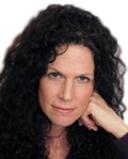Dementia
My Real World, My Aging Parents and Me
I was perpetually stung by the intense emotion behind caring for my parents.
Posted May 29, 2010
No adult child really knows what to expect when her (or his) parent starts to age. But if an expert can be blindsided, who wouldn't be?
A geriatric social worker, I had a Master's degree, was licensed in California and practiced in the exact field that encompassed just about every aging-parent issue you can think of. I was a wealth of resources, the go-to person who knew the issues of adult children, and what to do about them. I'd worked in inpatient psych and home health, phoned in elder abuse reports and counseled families about dementia and hospice. On a personal note, as a change-of-life baby I believed I was always pretty well prepared for my parents' "aging."
So, things didn't turn out exactly as I'd planned.
I was stung by the intense emotion behind caring for my parents, watching them decline and dealing with my (and their) unmet expectations about life and death. I had the benefit of knowledge, of clinical experience and much older siblings who cared about my parents as much as I did. Still, this whole caregiving business, despite my expertise, was not how I expected it.
Millions of caregivers face similar reality checks. I've had time to reflect and evaluate my own experience as well as see how others have fared. As a geriatric social worker I'm in a rare position of being able to offer insight—both clinically and personally—as I write about the complexities and varieties of caregiving and the impact it has—the good, the bad, the reality. This is the launching point for The New Truth About Life With Aging Parents.
In the years between my parents' deaths—my father died of cancer in 1991 before I was married; my mother in 2002 after my husband and I became parents—I was working as a geriatric clinical social worker and grief counselor helping families deal with their parents. That is to say, I truly understand the meaning of the term "sandwich."
In addition to my story we'll hear from doctors, nurses, attorneys, therapists, lawmakers, police officers, and individuals who have cared for (and about) parents who had dementia, Alzheimer's, Parkinson's (and maybe even meet some of the parents themselves). I'll cover issues from elderly addiction and hoarding to relationships, love and money—and so much more, especially how adult children see themselves.
I honestly didn't think caring for my aging parents would be this way—not being able to fathom things, important things. But these curve balls hit us—be you a therapist, engineer, doctor, lawyer, homemaker, artist, writer, singer—sometime, someway.
No matter how old your parents are, maybe we share similarities. In fact, we probably do.
Photo credit: lucyndskywdmnds***


